
 i_need_contribute
i_need_contribute

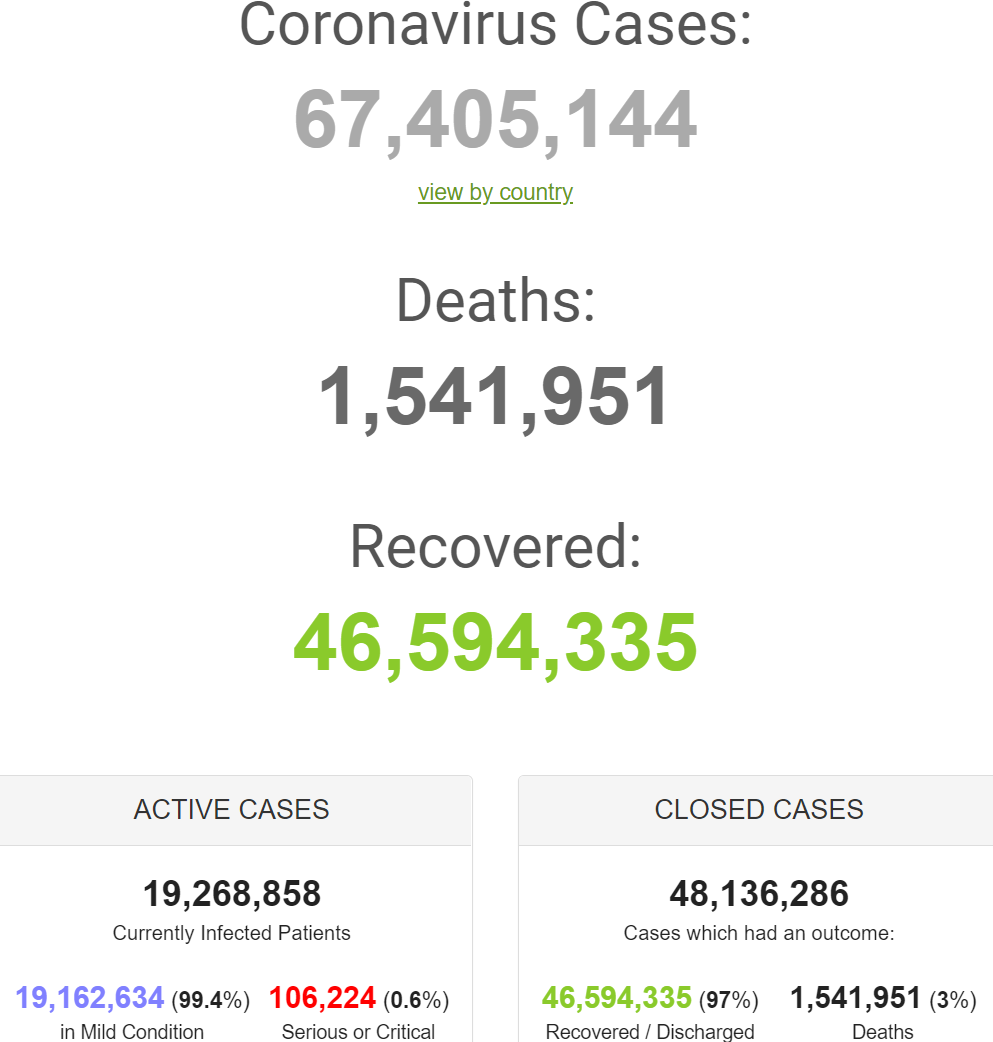
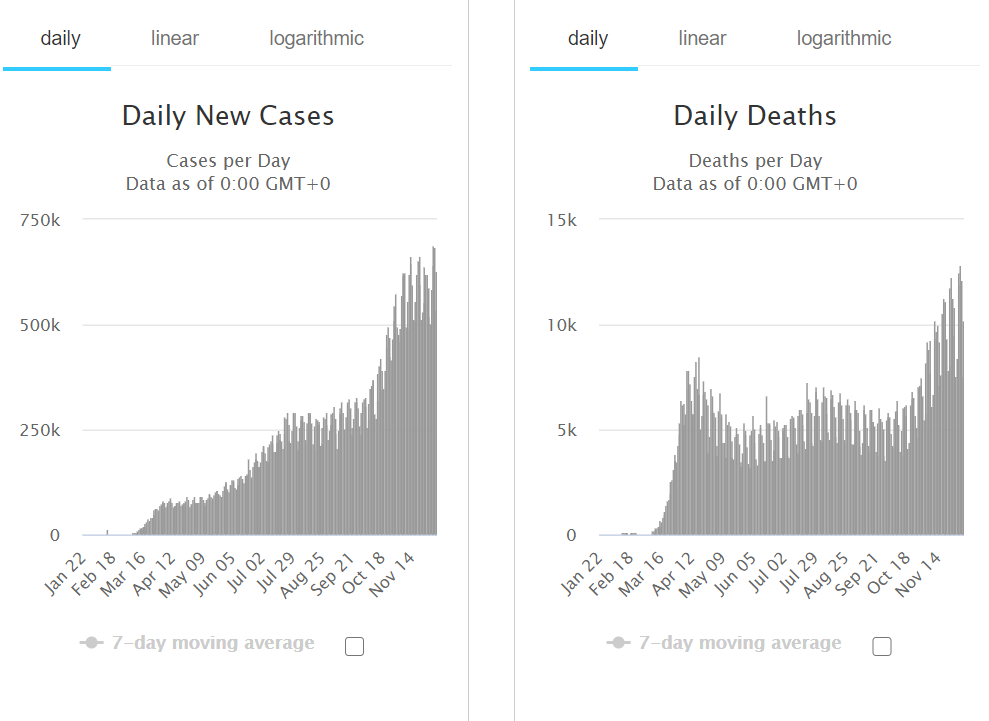
|
Country, |
Total |
New |
Total |
|
World |
67,377,463 |
+535,018 |
1,541,373 |
|
15,159,529 |
+173,861 |
288,906 |
|
|
9,676,801 |
+32,272 |
140,590 |
|
|
6,603,540 |
+26,363 |
176,962 |
|
|
2,460,770 |
+29,039 |
43,141 |
|
|
2,292,497 |
+11,022 |
55,155 |
|
|
1,728,878 |
+18,887 |
60,078 |
|
|
1,723,242 |
+17,272 |
61,245 |
|
|
1,699,145 |
+5554 |
46,252 |
|
|
1,463,110 |
+3,278 |
39,770 |
|
|
1,371,103 |
+8,854 |
37,808 |
|
|
1,184,845 |
+14,750 |
19,159 |
|
|
1,168,395 |
+11,625 |
109,456 |
|
|
1,063,449 |
+9,176 |
20,089 |
|
|
1,040,547 |
+11,561 |
50,310 |
|
|
973,912 |
+1,224 |
36,274 |
|
|
828,295 |
+30,402 |
14,900 |
|
|
814,565 |
+4,116 |
22,206 |
|
|
813,306 |
+11,590 |
13,588 |
|
|
589,942 |
+2,503 |
17,254 |
|
|
575,796 |
+6,089 |
17,740 |
|
|
564,200 |
+1,680 |
12,432 |
|
|
560,382 |
+1,714 |
15,628 |
|
|
557,224 |
+6,779 |
9,687 |
|
|
546,833 |
+1,116 |
8,902 |
|
|
513,576 |
+5,231 |
12,320 |
|
|
477,545 |
+1,666 |
6,838 |
|
|
439,834 |
+1,768 |
8,554 |
|
|
416,499 |
+3,308 |
8,361 |
|
|
415,182 |
+6,261 |
12,665 |
|
|
379,657 |
+2,919 |
6,245 |
|
|
358,713 |
+187 |
5,965 |
|
|
344,906 |
+1,080 |
2,917 |
|
|
322,474 |
+3,834 |
4,963 |
|
|
303,430 |
+2,741 |
3,840 |
|
|
250,278 |
+6,697 |
5,868 |
|
|
240,981 |
+1,096 |
1,594 |
|
|
240,089 |
+2,576 |
3,056 |
|
|
219,652 |
+5,809 |
1,949 |
|
|
197,998 |
+607 |
13,778 |
|
|
177,719 |
+1,812 |
3,193 |
|
|
176,429 |
+1,153 |
592 |
|
|
162,475 |
+4,321 |
1,504 |
|
|
161,421 |
+577 |
4,797 |
|
|
160,098 |
+2,424 |
2,315 |
|
|
150,353 |
+2,899 |
2,174 |
|
|
Dominican |
148,453 |
+798 |
2,345 |
|
147,157 |
+1,878 |
1,207 |
|
|
146,679 |
+4,356 |
1,632 |
|
|
145,492 |
+167 |
8,992 |
|
|
144,369 |
+205 |
891 |
|
|
141,937 |
+978 |
2,326 |
|
|
139,908 |
+125 |
239 |
|
|
137,112 |
+1,236 |
1,099 |
|
|
136,271 |
+773 |
2,034 |
|
|
125,550 |
+198 |
4,250 |
|
|
124,886 |
+557 |
1,444 |
|
|
118,432 |
+418 |
6,771 |
|
|
116,731 |
+1,269 |
996 |
|
|
116,365 |
+808 |
2,419 |
|
|
115,471 |
+903 |
3,003 |
|
|
113,295 |
+555 |
1,747 |
|
|
110,723 |
+763 |
2,945 |
|
|
104,442 |
+265 |
919 |
|
|
104,002 |
+1,011 |
3,561 |
|
|
99,155 |
+1,108 |
2,110 |
|
|
98,038 |
+1,940 |
828 |
|
|
90,603 |
+1,745 |
885 |
|
|
88,380 |
+396 |
1,526 |
|
|
88,252 |
+750 |
2,516 |
|
|
87,930 |
+198 |
341 |
|
|
87,920 |
+707 |
1,853 |
|
|
86,619 |
+18 |
4,634 |
|
|
86,580 |
+1,051 |
1,231 |
|
|
85,805 |
+1,030 |
1,744 |
|
|
74,973 |
+199 |
1,295 |
|
|
74,649 |
+2,219 |
626 |
|
|
74,246 |
+298 |
2,099 |
|
|
73,904 |
+153 |
611 |
|
|
72,694 |
+1,335 |
382 |
|
|
69,255 |
+318 |
1,180 |
|
|
67,968 |
+657 |
1,924 |
|
|
58,260 |
+5 |
29 |
|
|
52,274 |
+178 |
325 |
|
|
42,988 |
+840 |
905 |
|
|
40,131 |
+201 |
1,159 |
|
|
38,323 |
+250 |
354 |
|
|
38,246 |
+367 |
533 |
|
|
38,215 |
+531 |
353 |
|
|
37,546 |
+631 |
545 |
|
|
27,965 |
+9 |
908 |
|
|
12,451 |
+270 |
61 |
|
|
5,324 |
+2 |
117 |
|
|
4,965 |
+8 |
45 |
|
|
4,086 |
+14 |
60 |
|
|
1,366 |
+1 |
35 |
Retrieved from: https://www.worldometers.info/coronavirus/
From Masrur Jamaluddin in Indonesia and Alice Barnard in Hong Kong
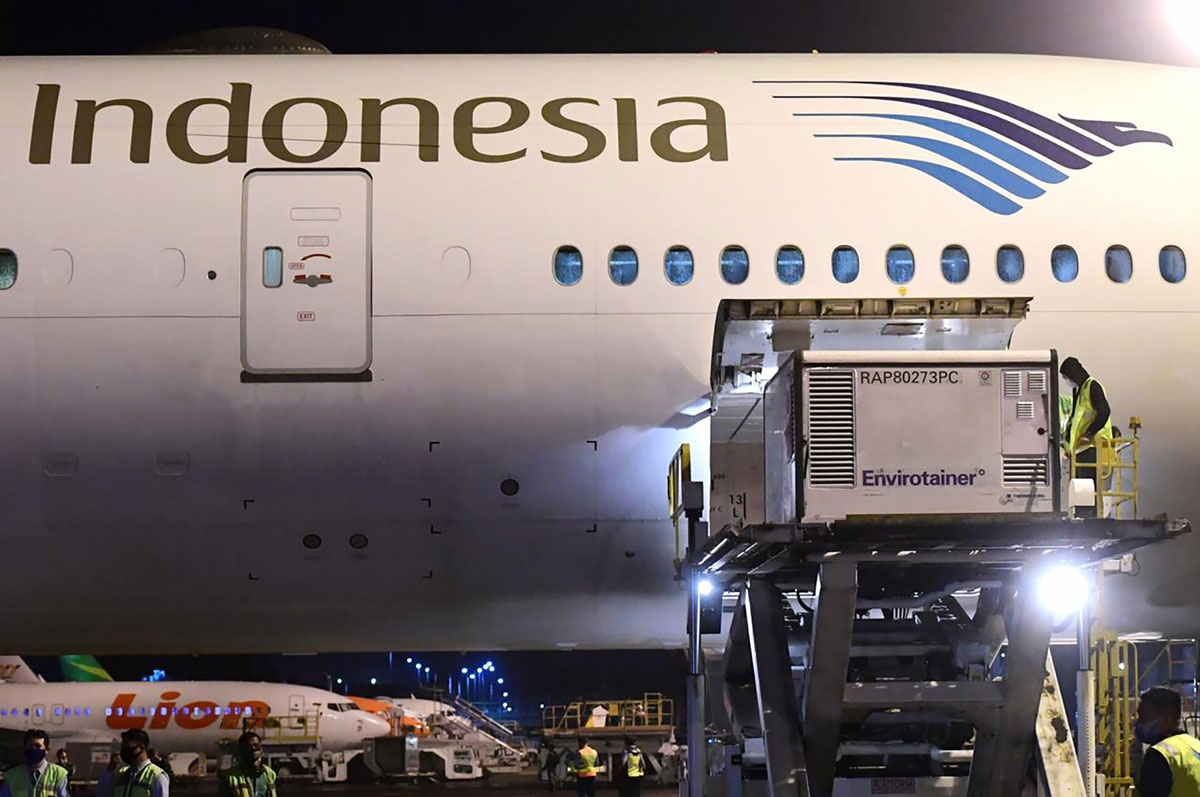
This handout photo taken on Dec. 6 and released by the Indonesian Presidential Palace shows workers unloading Sinovac Covid-19 vaccines at Jakarta International Airport, Indonesia. Indonesian Presidential Palace/AFP/Getty Images
Some 1.2 million doses of a Chinese Covid-19 vaccine have arrived in Jakarta, according to the Indonesian government.
The vaccines were received from China's Sinovac Biotech late on Sunday. Indonesia has been testing Sinovac's vaccine since August.
The doses were transported via a charter plane from Garuda Indonesia Airways, packaged inside special storage containers to maintain the quality of the vaccine. They arrived at Soekarno-Hatta International Airport in Jakarta before being transferred to a pharmaceutical facility in Bandung, West Java.
In an online briefing, Indonesian President Joko Widodo said Indonesia was also working to get access to 1.8 million doses of the vaccine by early January 2021.
Case numbers: Indonesia, the world's fourth most populous nation, has reported the highest coronavirus caseload in Southeast Asia. More than 575,000 Covid-19 infections, including 17,740 deaths, have been confirmed in the country, according to Johns Hopkins University.
From CNN's Madeline Holcombe and Dakin Andone
A record 101,487 Covid-19 patients were in US hospitals on Sunday, according to the Covid Tracking Project, underscoring the immense pressure on the nation's hospitals and health care workers.
"Our hospitals are already at the brink," said CNN medical analyst Dr. Leana Wen, a former Baltimore City health commissioner. "And they are just at the brink of becoming so overwhelmed that patients are going to get less than ideal care."
Already stretched thin, experts and health care workers fear things will only get worse, with a potential surge of infections fueled by Thanksgiving travel and gatherings.
Just one week after the holiday, the US has yet to feel the full effects. But Wen said we will see an "exponential rise" in cases in the next few weeks, and she urged Americans do their part to combat the spread of the virus and relieve the strain on hospitals.
"Because otherwise we have a catastrophe on our hands that's worse than any of us can possibly imagine," she said.
December has brought the highest hospitalization numbers in the US since the pandemic began as the virus continues to spread like wildfire.
It took almost 100 days for the US to reach 1 million coronavirus infections after the first cases were confirmed on January 20. But in the first five days of the month, from Tuesday to Saturday, 1,000,882 cases were reported in the US, according to data from Johns Hopkins University.
More than 14.7 million confirmed cases had been reported in the US as of Sunday night, and more than 282,200 people have died.
From CNN’s Gawon Bae in Seoul
South Korea's military and police will help with contact tracing efforts as cases surge in the country, the presidential Blue House announced Monday.
President Moon Jae-in ordered the move after 580 local cases were diagnosed on Sunday, according to the Korean Center For Disease Control. Four additional deaths were also reported.
Covid-19 testing centers will have their hours extended into the night and on weekends to encourage testing in the greater Seoul area.
Moon urged anyone who is concerned they may have the virus to get tested immediately, regardless of their symptoms.
In total, South Korea has reported more than 38,000 coronavirus cases, including 549 deaths.
Retrieved from: https://edition.cnn.com/world/live-news/coronavirus-pandemic-12-07-20-intl/index.html
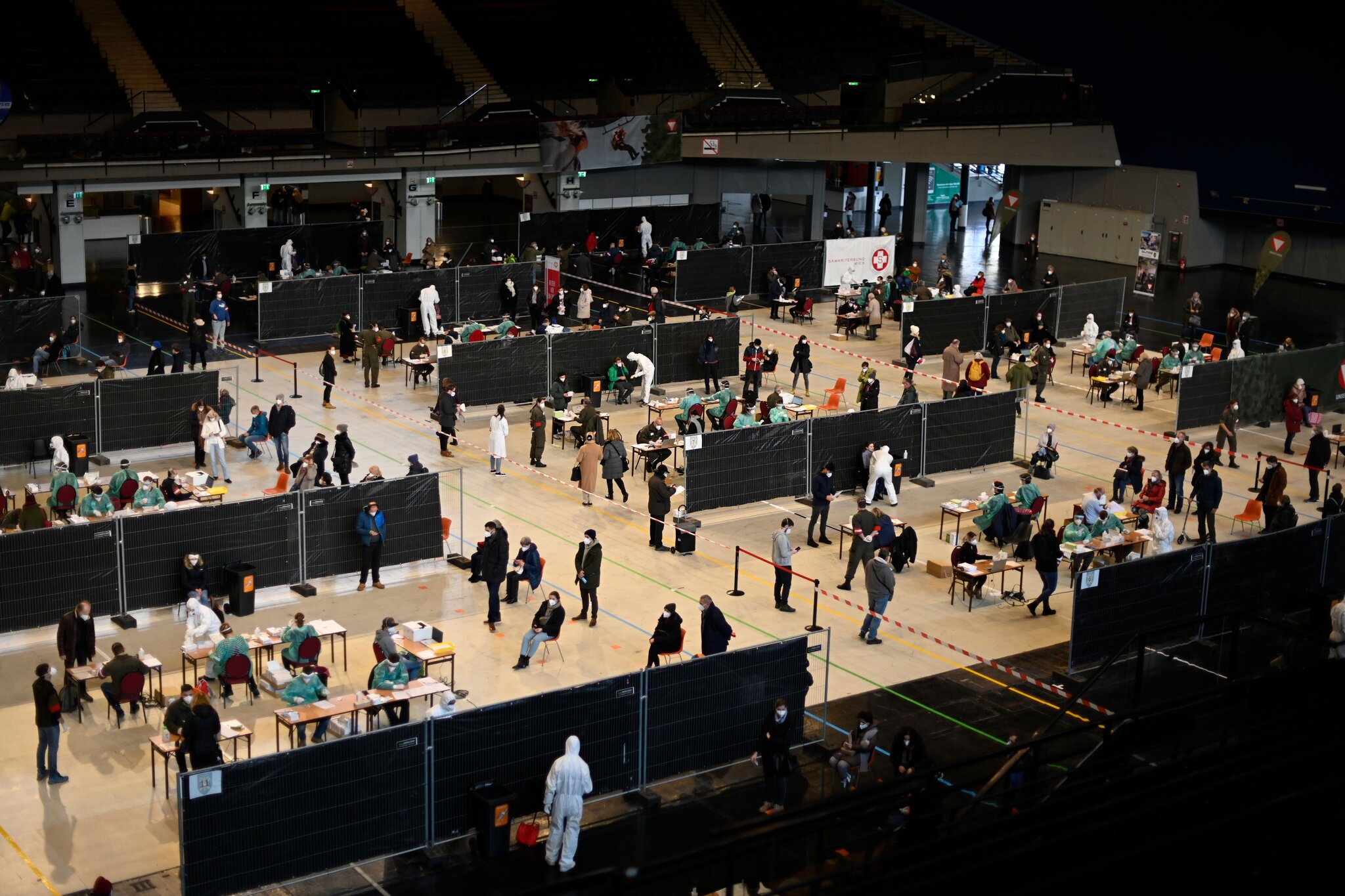
Experts think overlapping testing, like this effort in Vienna, with social distancing, wearing masks and providing good ventilation, creates a stronger defense.Credit...Christian Bruna/EPA
In the ongoing conversation about how to defeat the coronavirus, experts have made reference to the “Swiss cheese model” of pandemic defense.
The metaphor is easy enough to grasp: Multiple layers of protection, imagined as cheese slices, block the spread of the virus that causes Covid-19. No one layer is perfect: Each has holes, and when the holes align, the risk of infection increases. But several layers combined — social distancing, masks, hand-washing, testing and tracing, ventilation, government messaging — significantly reduce the overall risk. Vaccination will add one more protective layer.
“Pretty soon you’ve created an impenetrable barrier, and you really can quench the transmission of the virus,” said Dr. Julie Gerberding, executive vice president and chief patient officer at Merck, who recently referenced the Swiss cheese model.
“But it requires all of those things, not just one of those things,” she added. “I think that’s what our population is having trouble getting their head around. We want to believe that there is going to come this magic day when suddenly 300 million doses of vaccine will be available and we can go back to work and things will return to normal. That is absolutely not going to happen fast.”
In October, Bill Hanage, an epidemiologist at the Harvard T.H. Chan School of Public Health, retweeted an infographic rendering of the Swiss cheese model, noting that it included “things that are personal *and* collective responsibility — note the ‘misinformation mouse’ busy eating new holes for the virus to pass through.”
The Swiss cheese concept originated with James T. Reason, a cognitive psychologist, now a professor emeritus at the University of Manchester, England, in his 1990 book, “Human Error.” A succession of deadly disasters in the 1980s — including the Challenger space shuttle explosion; the toxic gas leak in Bhopal, India; and the nuclear accident in Chernobyl, Ukraine — motivated the concept, and it became known as the “Swiss cheese model of accidents,” with the holes in the cheese slices representing errors that accumulate and lead to adverse events.
The metaphor now pairs well with the coronavirus pandemic. Ian M. Mackay, a virologist at the University of Queensland in Brisbane, Australia, saw a version on Twitter, but thought that it could do with more slices and more information. So he created, with collaborators, the “Swiss Cheese Respiratory Pandemic Defense.”
Retrieved from: https://www.nytimes.com/live/2020/12/05/world/covid-19-coronavirus/a-virologist-explains-the-swiss-cheese-model-of-pandemic-defense
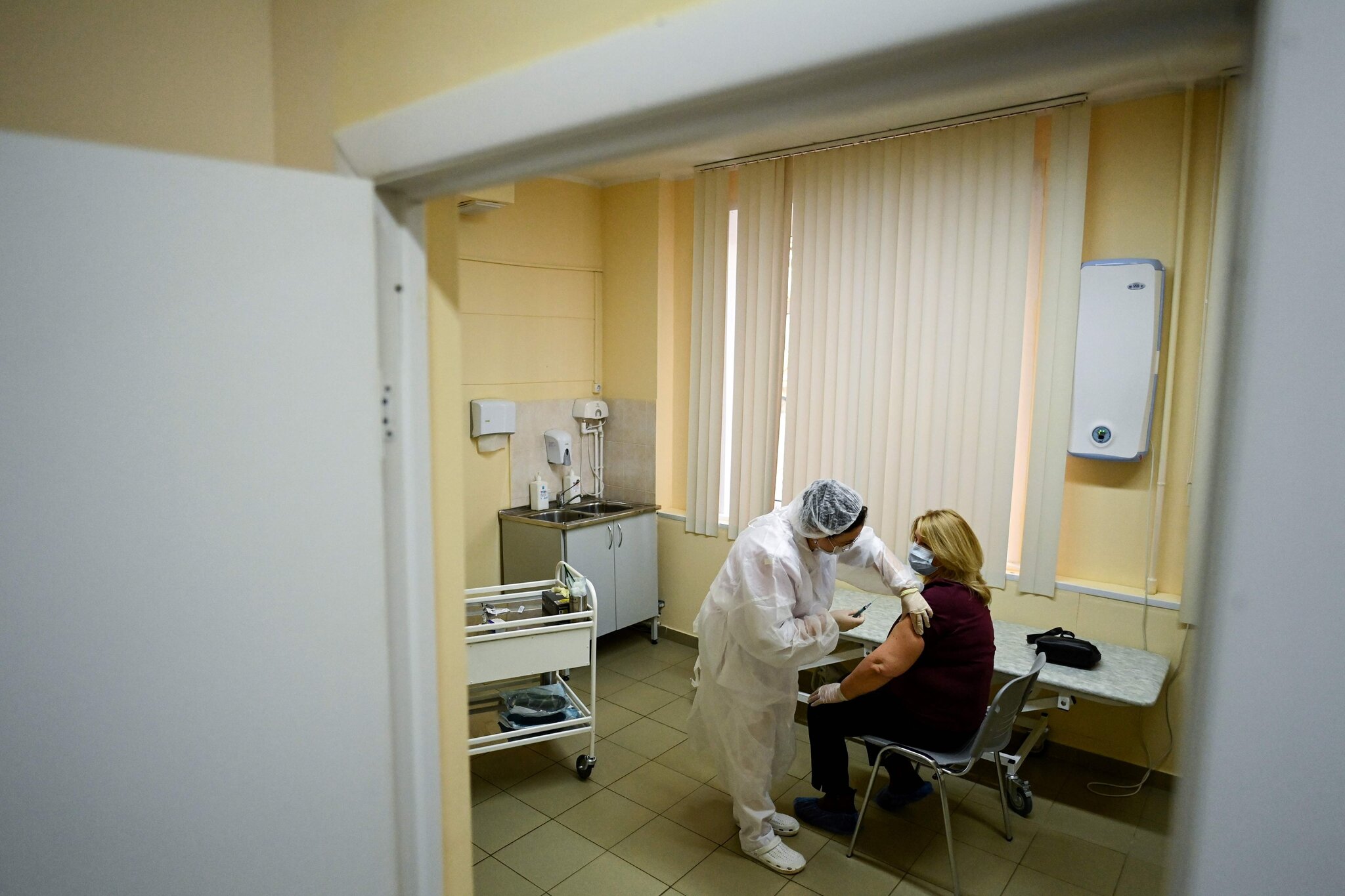
The scene at one of Moscow’s 70 vaccination sites on Saturday. Credit...Kirill Kudryavtsev/Agence France-Presse — Getty Images
Health care workers began vaccinating thousands of people in Moscow against the coronavirus on Saturday, a campaign that will expand nationally next week despite relying on a vaccine that has not been fully proven to be safe and effective.
Doctors, health care workers, social workers and teachers — all judged to run the highest risk of exposure to the virus — are receiving the vaccine in 70 locations across the city, and are to receive a second 21 days later.
Russia drew widespread criticism when it registered its Sputnik V vaccine for emergency use in August, before beginning a clinical trial to measure its efficacy. But President Vladimir Putin boasted that it was the first vaccine in the world to receive government approval.
Last month, the makers of the Sputnik vaccine reported positive results from a clinical trial, but the vaccine had been tested on a small and unspecified number of people. The final trial has also yet to be completed.
Still, in Moscow, vaccination is now open to workers between the ages of 18 and 60 who face high risks of exposure. Pregnant women and people suffering from a cold or chronic conditions are barred from receiving it.
On Friday, Mayor Sergei Sobyanin said that 5,000 people had registered to get the vaccine, and Deputy Prime Minister Tatiana Golikova cautioned those receiving it to avoid public places and reduce their intake of medicine and alcohol within the first 42 days after the first jab, because it could suppress the immune system, Reuters reported.
Since the beginning of the pandemic, Russia has recorded nearly 2.4 million cases, the fourth-largest number in the world, and more than 41,000 deaths. Moscow, with around 13 million people, has been the epicenter of the country’s outbreak.
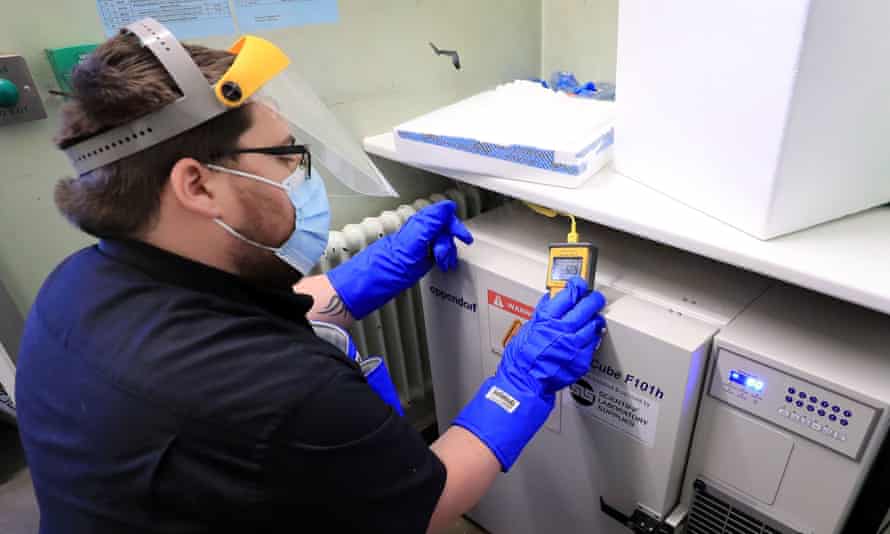
A pharmacy technician takes delivery of the first batch of Covid-19 vaccinations at Croydon University hospital in south London. Photograph: Gareth Fuller/AFP/Getty Images
Batches of the Covid vaccine have begun to arrive in hospitals around the UK, ready for the first jabs on Tuesday in what NHS England’s medical director warned would be the largest and most complex vaccination campaign in the country’s history.
The UK’s record-breaking approval of the vaccine and the rapid start of immunisation against Covid-19 did not mean the end of the pandemic was in sight, said Prof Stephen Powis. It would be a marathon and not a sprint, he said.
“It will take many months for us to vaccinate everybody who needs vaccination,” Powis said on Sky News.
The logistical hurdles are great. The Pfizer/BioNTech vaccine has to be stored in deep-frozen packs containing 975 doses at minus 70C that cannot easily be split down into small batches to be taken to individual care homes, whose residents have been designated the first priority. It can be moved only four times and lasts for just five days at fridge temperature.
Dr June Raine, chief executive of the Medicines and Healthcare products Regulatory Authority (MHRA), which gave the vaccine temporary emergency authorisation last week – ahead of the rest of the world – said it had now approved a method of splitting the packs, but that it had to be done with great care in order that no vaccine would be wasted.
“We have approved how the vaccine can be put into the small packs, but obviously what we’re doing is giving advice and guidance on how well, carefully, that is done,” she told BBC’s Andrew Marr Show.
“Our goal is to ensure that the vaccine reaches people in care homes, the residents there, as safely as possible. So everyone is working hard with our colleagues in the NHS to make sure that happens safely.”
But the first shots will be given at 50 hospital hubs in England and others in Scotland, Wales and Northern Ireland to people aged over 80, some of whom may be care home residents able to travel. NHS staff were working through the weekend to prepare immunisation clinics and compile lists of who should be invited to have the jab first.
People over the age of 80 who already have an outpatient hospital appointment this week will be invited for vaccination while they are there, said NHS England. So will elderly patients being discharged after a hospital stay. Care homes will be invited to book their staff in.
To ensure no vaccine or time is wasted, spare appointments will be offered to those healthcare workers who are at high risk from the coronavirus. All those who get the shot will be given an appointment for the second dose in three weeks’ time.
GP surgeries are being put on standby to offer vaccination from the start of next week. That will begin with a small number of practices but will gradually be extended. Mass vaccination centres at large venues such as football stadiums will not open until there are further supplies of this or other vaccines next year.
The health secretary, Matt Hancock, said: “This coming week will be a historic moment as we begin vaccination against Covid-19. We are prioritising the most vulnerable first and over-80s, care home staff and NHS colleagues will all be among the first to receive the vaccines.
“We are doing everything we can to make sure we can overcome significant challenges to vaccinate care home residents as soon as possible too. I urge everybody to play their part to suppress this virus and follow the local restrictions to protect the NHS while they carry out this crucial work.”
Raine said it was vitally important that people understood the vaccine was safe. There “should be no doubt whatever that this is a very safe and highly effective vaccine”, she said.
The rest of the world is watching the UK as it launches its vaccination programme, following criticism in Europe and the US of the speed with which the MHRA approved the vaccine.
Raine defended the fast decision. “I would really like to emphasise that the highest standards of scrutiny, of safety and of effectiveness and quality have been met, international standards. And so there should be real confidence in the rigour of our approval.
“More than that, our Commission on Human Medicines has scrutinised every piece of data too, so there should be no doubt whatever that this is a very safe and highly effective vaccine.
“It will help us turn the corner. There’s really not one of us who hasn’t been affected by this pandemic, and our organisation, like every other, has been completely focused on doing our job to be able to help defeat this terrible disease.”
The UK has bought 40m doses of Pfizer’s vaccine, which is enough for 20 million people, but most will arrive next year. The deputy chief executive of NHS Providers, Saffron Cordery, said 4m doses were expected before the end of the year.
“It is important that people wait to be contacted by the NHS to have their vaccine. There is a rigorous, large-scale exercise already well under way by all the hospital hubs with local partners to identify and contact people who will be first in line. This will help ensure that the process runs as smoothly as possible,” she said.
The UK recorded 17,272 new cases of Covid-19 on Sunday, up from 15,539 a day earlier, and 231 deaths were reported, bringing the total to 61,245.
Retrieved from: https://www.theguardian.com/world/2020/dec/06/covid-vaccine-arrives-in-uk-hospitals-ready-for-first-jabs
Here are the key developments from the last few hours:
· UK to administer first vaccine doses on Tuesday. Britain is set to administer the first doses of the Pfizer/BioNTech COVID-19 vaccine on Tuesday, with the NHS giving top priority to vaccinating the over-80s, frontline healthcare workers and care home staff and residents. The Pfizer/BioNTech vaccine needs to be kept at -70C (-94F) and only lasts five days in a regular fridge. For that reason, it will first be administered in 50 hospitals. About 800,000 doses are expected to be available within the first week.
· Giuliani in hospital – reports. Multiple news outlets are reporting that Rudy Giuliani, personal lawyer to Donald Trump, has been admitted to hospital following the announcement by Trump on Twitter that Giuliani had tested positive for coronavirus. CNN, the New York Times and the ABC, citing unnamed sources familiar with the situation, report that Giuliani has been admitted to Georgetown University Hospital.
· President-elect Joe Biden has picked California Attorney General Xavier Becerra to be his health secretary, putting a defender of the Affordable Care Act in a leading role to oversee his administration’s coronavirus response. If confirmed by the Senate, Becerra, 62, will be the first Latino to head the Department of Health and Human Services.
· Biden expected to nominate Massachusetts General Hospital chief to run US CDC. US President-elect Joe Biden is expected to nominate Rochelle Walensky, chief of infectious diseases at Massachusetts General Hospital, to run the US Centers for Disease Control and Prevention, Reuters reports, citing a person familiar with the decision.
· In Australia, the city of Melbourne has welcomed its first international passenger flight in five months, an arrival that will test the state of Victoria’s revamped hotel quarantine system. Australia has since March closed its borders to non-citizens, but airports serving Victoria’s capital stopped accepting any arrivals in late June after an outbreak of Covid-19 that began at two hotels where arrivals were quarantining.
· South Korea expands testing. South Korean President Moon Jae-in on Monday ordered testing for the new coronavirus to be expanded by mobilizing the military and more people from the public service, as the country continued to report triple-digit daily new cases.
· South Korea reported 615 new coronavirus cases on Monday, the Korea Disease Control and Prevention Agency said, capping a month of triple-digit daily increases that have driven the nation’s largest wave of infections in nine months. Monday’s total was down slightly from Sunday, when the agency reported 631 new cases, the largest daily tally since a peak in February and early March.
· Public support for Japan’s new prime minister, Yoshihide Suga, has plummeted over the past month amid mounting criticism of his handling of the coronavirus pandemic. A new poll by the Kyodo news agency shows support for his cabinet at 50.3%, down 13 percentage points from a month earlier. Disapproval rose from 19.2% to 32.6%.
· The Serum Institute of India has sought emergency use authorisation from India’s drug regulator for AstraZeneca Plc’s Covid-19 vaccine on Sunday, according to several reports in Indian media, citing the Press Trust of India. It applied to the Drugs Controller General of India, citing unmet medical needs due to the pandemic and in the interest of the public at large, the agency report said, citing official sources. The Serum Institute was not immediately available to Reuters request for comment.
· Japan is preparing to send nurses from the Self-Defence Forces to Osaka and Hokkaido to help treat a surge in coronavirus infections as soon as the two prefecture governments request it, chief government spokesman Katsunobu Kato said on Monday.
· Indonesia receives first vaccine shipment from China. Indonesia received its first shipment of coronavirus vaccine from China on Sunday, President Joko Widodo said, as the government prepares a mass inoculation programme.The vaccine still needs to be evaluated by the country’s food and drug agency while his administration prepares to distribute it across the vast archipelago of 270 million people, Jokowi said.
· The Arizona Capitol Times reports that the Arizona state legislature will close for the whole of this coming week, “after at least 15 current or future Republican legislators may have been directly exposed to Covid-19 by meeting with Rudy Giuliani.”